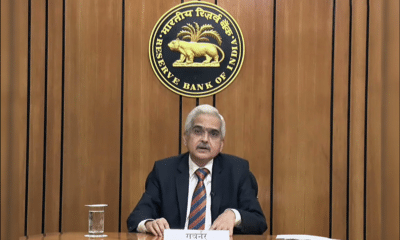Business
Small businesses don’t have enough cash for prolonged shutdown
Rating agencies and non-banking finance companies (NBFCs) have warned that small businesses do not have enough cash for prolonged shutdown and delinquencies could arise in the small and medium enterprises (SME) segment if the lockdown continues.
Abhishek Dafria, VP and head (structured finance) at ICRA, said there is reason to be cautions because of the surging COVID-19 infections. “After the nationwide lockdown last year, we had witnessed a severe drop in collections for most asset classes though the availability of a moratorium provided a breather from an NPA-recognition perspective.”
Dafria said that while the current restrictions are localized and less harsh, the severity has been gradually increasing as the surge in COVID cases is yet to be brought under control. Pointing out that last year it was microfinance and unsecured SME loans that had the highest delinquencies after the lockdown period, he said that the risk categorization would remain similar for areas that see stronger government restrictions.
NBFCs highlight that since default by small businesses could result in credit freeze to this segment, the Reserve Bank of India might be forced to look at a moratorium if the lockdown restrictions get extended geographically and go on for a longer duration. Moreover, NBFCs have asked the RBI for an extension of the one-time structuring of MSMEs advances till March 2022, as they are yet to revive their businesses due to the surge in infections.
Lenders have already said that they would be helpless if the loans slip into non-performing asset (NPA) category as then no further relief can be given, and they would have to initiate recovery proceedings. In addition to the moratorium and emergency credit line in 2020, a SC order had prevented banks from classifying delinquencies after the COVID-19 outbreak as NPAs.
Also Read: MeitY announces innovation challenge to accelerate adoption of FOSS in government
The Finance Industry Development Council, which represents NBFCs, has written to RBI saying that due to the severe second wave of COVID-19 infections, the MSMEs as also the retail and wholesale trader industry have not been able to revive their economic activities and therefore are in urgent need for support from the lenders. “Various surveys and reports are forewarning that the operating environment for banks will most likely remain challenging, as the second wave could dent the sluggish recovery in consumer and corporate confidence, and further suppress banks’ prospects for new business.”
The bankers said that the combination of moratorium and emergency credit line guarantee scheme in the previous year helped to protect banks, NBFCs and small businesses.









































Pingback: Spike in COVID-19 infections biggest challenge to Indian economy: RBI Governor | The Plunge Daily